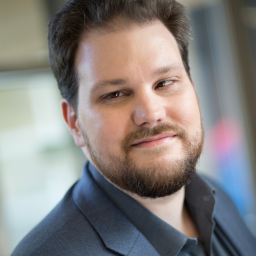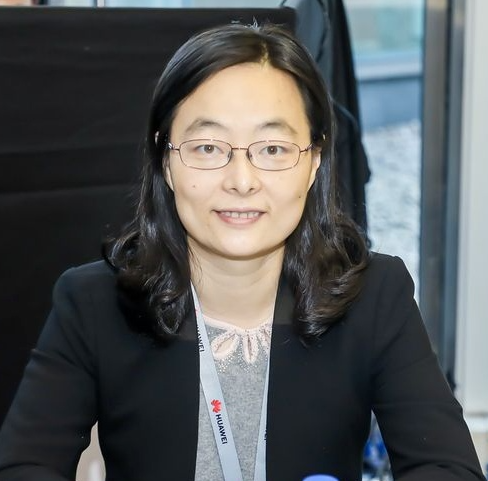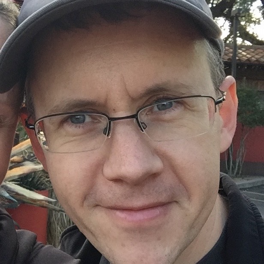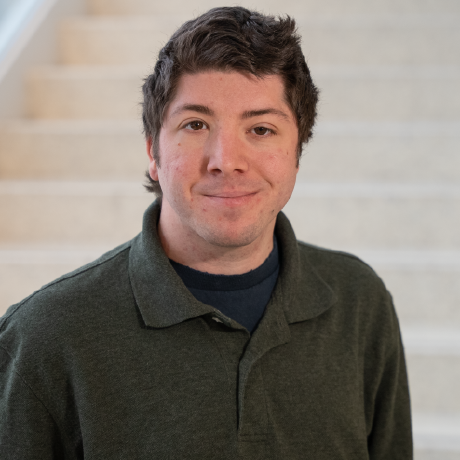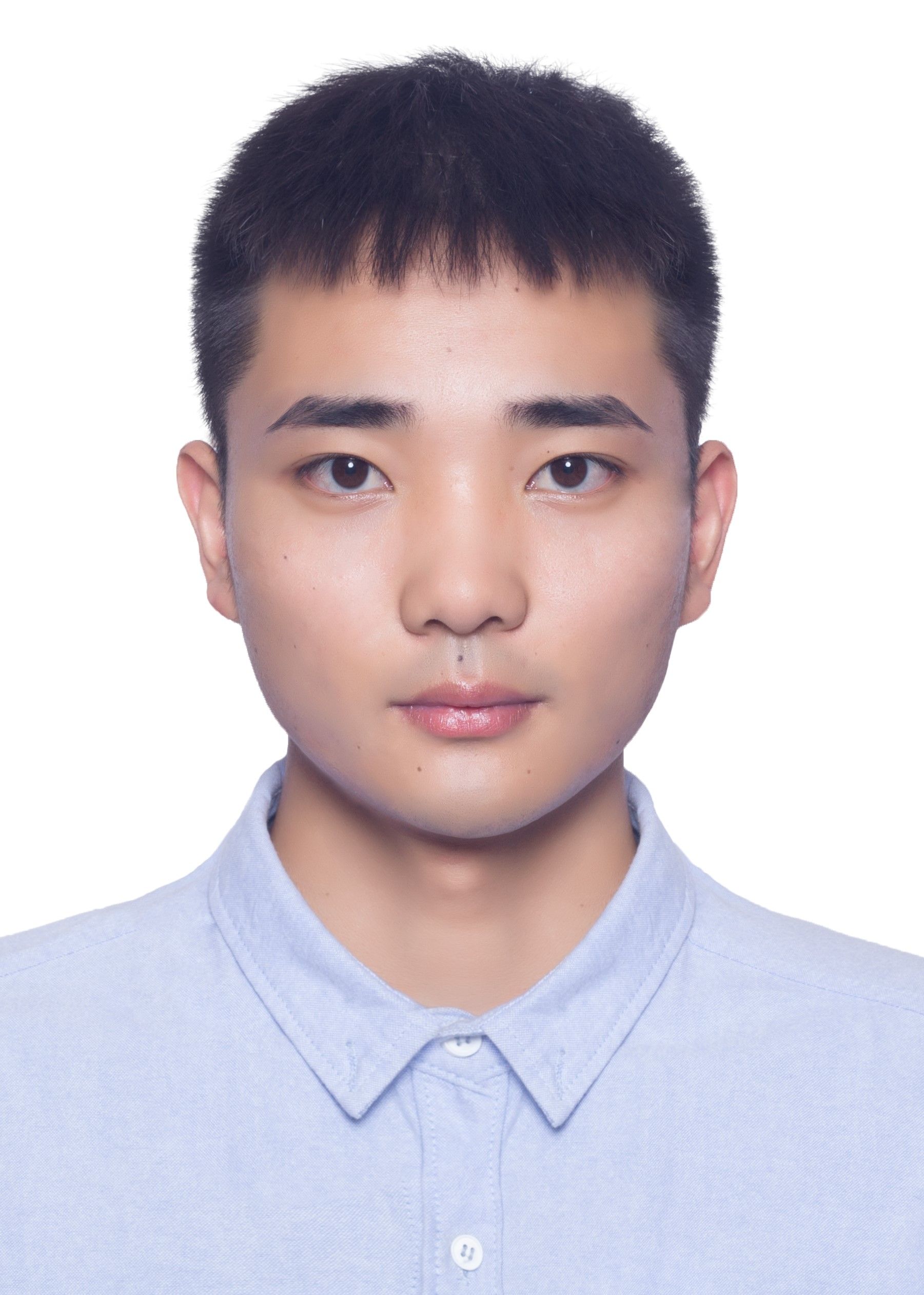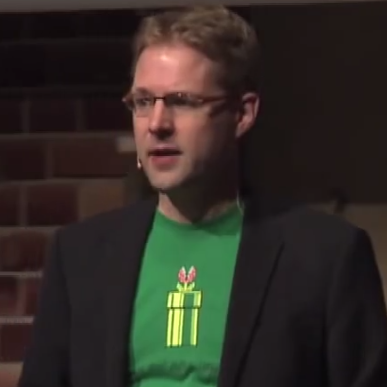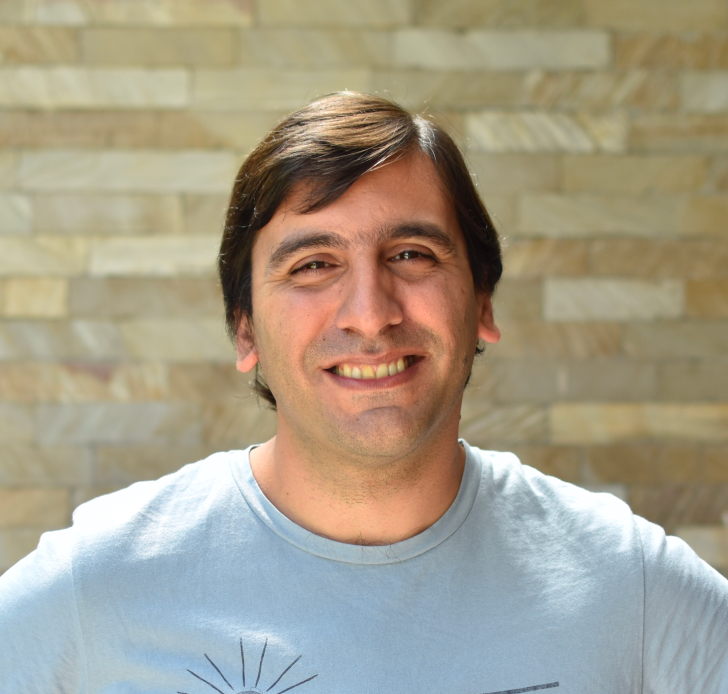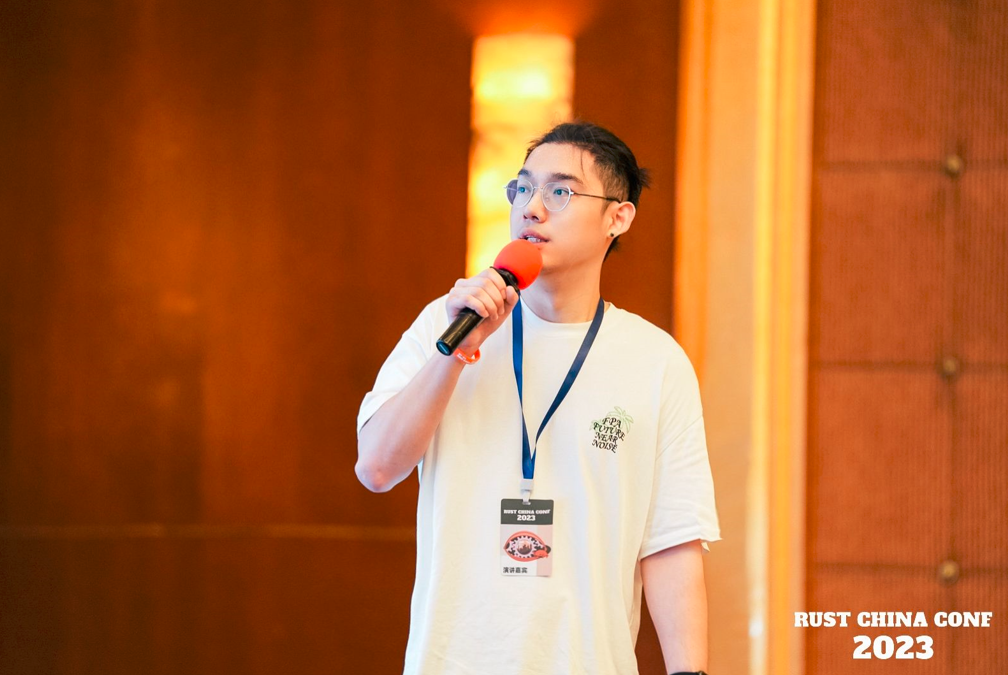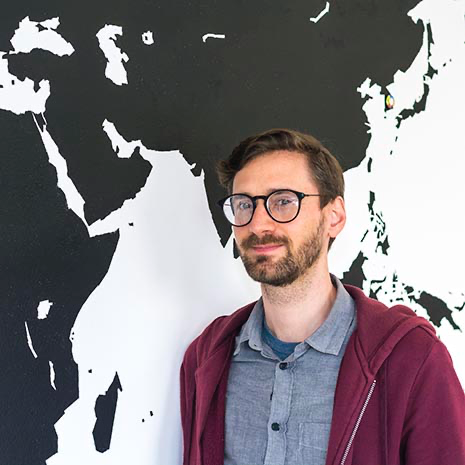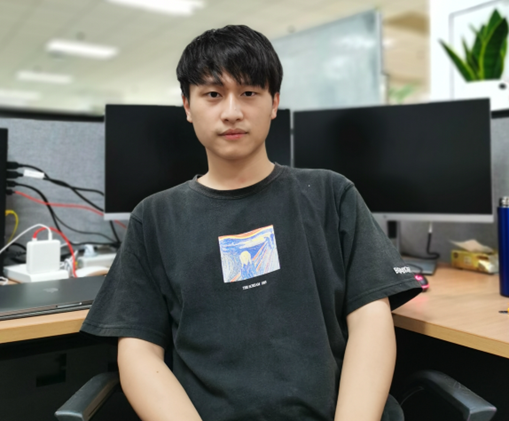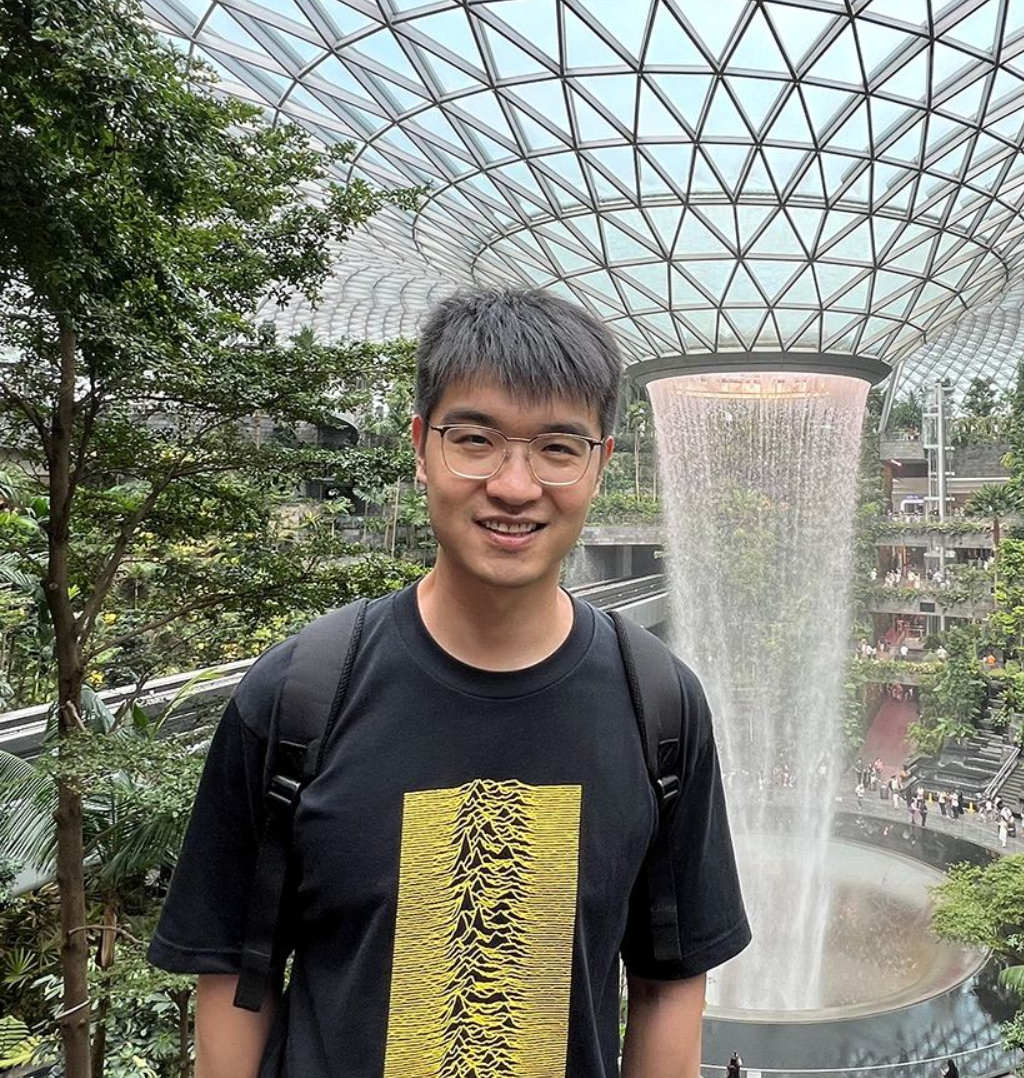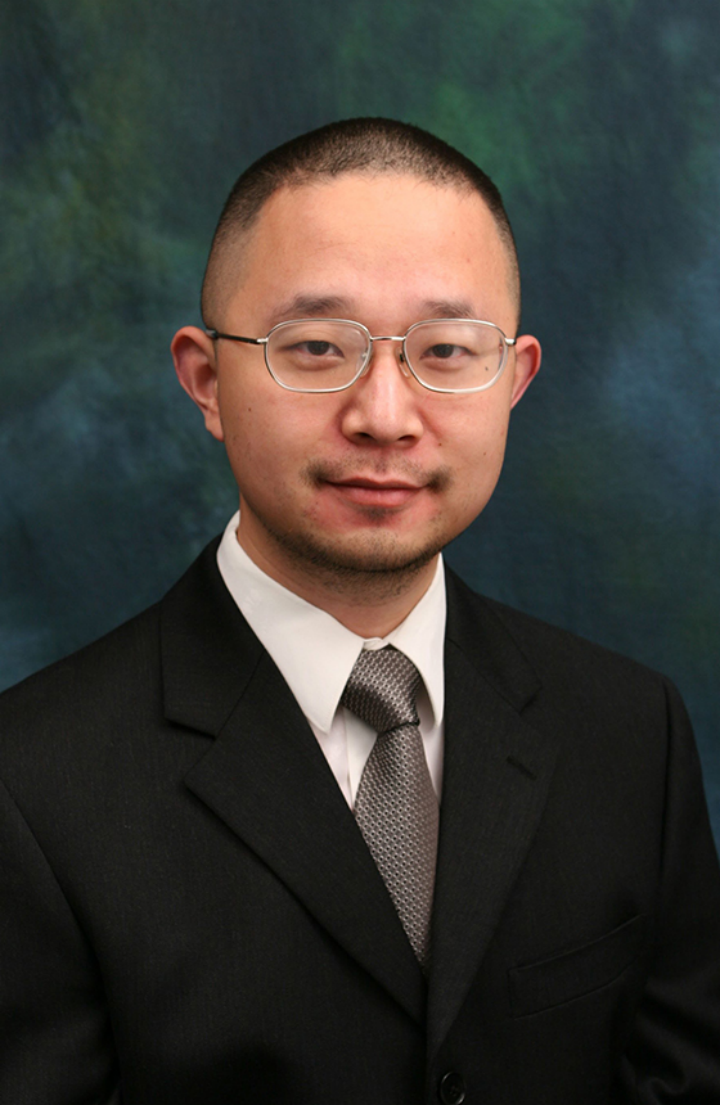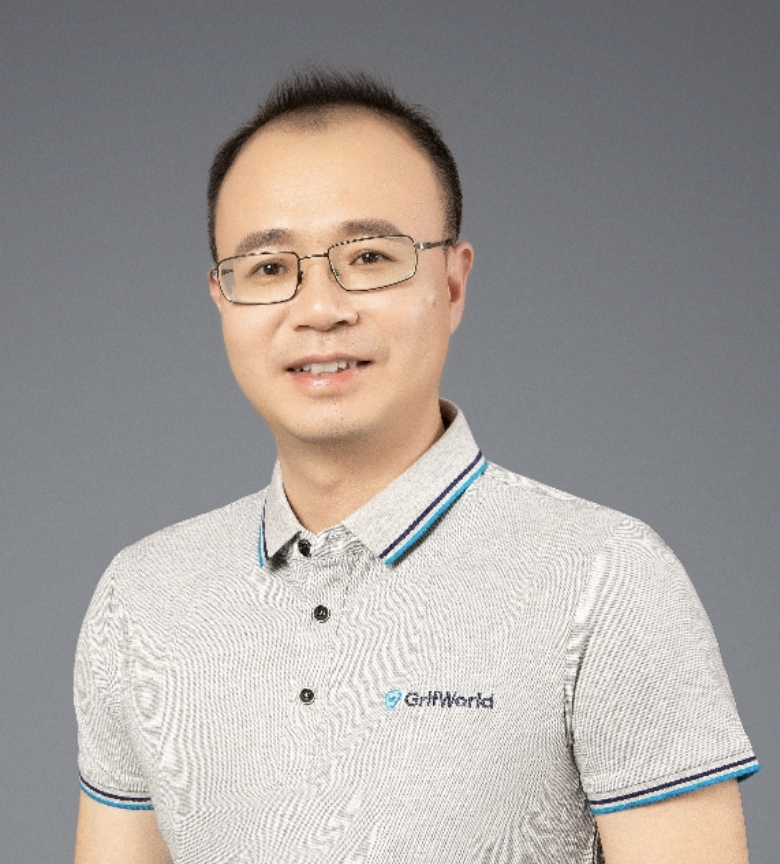GOSIM
Workshop
schedule

Schedule
Day 01
OPEN LLM visions, projects and INFRA
8:00 am
Registration
Registration
9:00 am
GOSIM Workshop Kickoff
GOSIM Workshop Kickoff
9:30 am
GOSIM Keynotes - Building the Backbone: AI Infrastructure in an Open-Source Era
GOSIM Keynotes - Building the Backbone: AI Infrastructure in an Open-Source Era
In today's dynamic
digital age, AI infrastructure has emerged as the backbone supporting the rapid
advancements in artificial intelligence. However, as we stand on the cusp of a new
AI-driven era, it is the power of open-source initiatives that promises to sustain and
amplify these advancements. This presentation seeks to shed light on how open-source AI
infrastructure is far beyond mere toolsets and platforms—it embodies the spirit of
collective progress, community-driven innovation, and scalability. The talk will walk you
through real-world examples of how open-source AI infrastructure projects are shaping the
very foundation of AI's future. This journey will encompass the nitty-gritty of
design considerations, scalability challenges, and harmonizing diverse hardware and
software environments. Moreover, a deep dive into the ethical implications of AI
infrastructure design and how inclusivity in the open-source community can influence
ethical AI will be explored. The emphasis on creating tools that democratize AI, ensuring
accessibility, and fostering a rich ecosystem will be highlighted. As we cast our vision
forward, the session will also touch upon the symbiotic relationship between Large
Language Models (LLMs), General Artificial Intelligence (GAI), and the critical role of
open-source infrastructure in their evolution. Come, let's architect the AI-driven
future in harmony, through the pillars of open-source infrastructure.
10:15 am
GOSIM Keynotes - Evolving Rust to the Next Ten Million Developers
GOSIM Keynotes - Evolving Rust to the Next Ten Million Developers
Developers who already use
Rust have widely expressed satisfaction with it. However, Rust remains a challenging
language for new developers to learn and become fluent in. As we continue to evolve Rust
over the next decade, what changes should we make to help developers adopt Rust? How can
we help the Rust software ecosystem scale with those developers, and what challenges do we
foresee? How do we avoid getting stuck in local maxima of language design?
In this talk, I'll start out by presenting known directions from the Rust language
roadmap, and then continue on into some detailed speculative explorations the Rust
language could go in. I'll discuss some lessons we can learn from other languages and
language design experiments, and some problems we are still exploring potential solutions
for. (This talk should not be taken as the concrete direction for Rust, only as an example
of the degree of innovation we may need in order to reach the future.)
11:00 am
Morning Break
Morning Break
11:15 am
Huggging Face Big Code Project
Huggging Face Big Code Project
BigCode is an open
scientific collaboration focused on the development of large language models for code. By
developing strong, open-access models, BigCode aims to narrow the gap with closed-source
models and enhance data governance practices in AI and software engineering. Our work
reflects a concerted effort in collaboration with the open-source community to strengthen
transparency, responsibility, and development within the field. For instance, we released
the largest collection of permissive GitHub repositories in The Stack dataset and
StarCoder, a strong multilingual code model.
12:15 pm
Lunch Break
Lunch Break
1:45 pm
Human Feedback Learning: Applications And Challenges
Human Feedback Learning: Applications And Challenges
Reinforcement Learning with
human feedback (RLHF) is a key technology widely adopted in training the most advanced
Large Language Models (LLMs). RLHF enables large language models (LLMs) to learn and
understand human objectives from human preference behaviors, thereby better adapting and
handling complex issues such as human values and emotions that are challenging to model.
The Fengshenbang team conducted in-depth studies on the core stages of RLHF, namely reward
modeling and policy optimization. Unique experiences and methods have been developed to
address the instability of reinforcement learning training, such as the large-scale nature
of exploration spaces, the sparsity of rewards and the imperfection of the reward model.
Despite this, many open issues in RLHF still need to be resolved, which may require more
sophisticated algorithm mechanisms.
2:15 pm
How to Train Expert Large Language Models for Vertical Abilities
How to Train Expert Large Language Models for Vertical Abilities
Vertical capabilities in
large language models are vital for deploying impactful industry models. The Fengshenbang
team is dedicated to exploring training and fine-tuning methods for various vertical
skills. We will discuss techniques for tasks like coding, writing, and retrieval
augmentation, highlighting the existing challenges.
2:45 pm
A New Generation of General Distributed Computing Infrastructure Supporting Artificial Intelligence Applications
A New Generation of General Distributed Computing Infrastructure Supporting Artificial Intelligence Applications
Due to its lightweight,
efficient, and secure characteristics, WASM (WebAssembly) is rapidly expanding its range
of applications. Especially in the direction of artificial intelligence, the new WASI-NN
standard provides AI inference capabilities for WASM applications. In practice, we found
that there is extensive complementary synergy between the Ray architectural ecosystem and
the WASM ecosystem. Ray is a high-performance distributed computing framework that has
been widely used for machine learning training and tuning. By fully leveraging the
distributed computing capabilities of the Ray framework, we can effectively address the
resource constraints and parallel execution limitations of the WASM runtime environment.
We developed Warrior, a WASM distributed scheduling and execution system based on Ray.
This system allows developers to create monolithic applications with runtime dynamic
distributed execution and offers dynamic monitoring of user code at runtime to achieve
high performance, high availability, and fine-grained distributed execution for cloud
applications. Additionally, ML businesses can also utilize the Warrior platform for
distributed AI inference and learning, providing a lightweight, efficient, and secure
architecture platform for domains like LLM
3:45 pm
Afternoon Break
Afternoon Break
4:00 pm
IBM watsonx - Open Source Based GenAI Platform enables enterprise put AI in action
IBM watsonx - Open Source Based GenAI Platform enables enterprise put AI in action
IBM's
"Watsonx" represents an enterprise-level generative AI platform based on
open-source technologies, aiming to empower businesses in their intelligent restructuring.
IBM's journey with open-source reveals both the opportunities and risks that
companies encounter when integrating such technologies. This is seen in the broader
context of the evolution of AI and its main technologies. Introducing AI into businesses
presents opportunities, challenges, and pivotal questions. IBM's exploration and
contributions in enterprise-level AI shed light on this area. Specifically, Watsonx's
components and capabilities demonstrate its strength, while its open-source ecosystem
underlines IBM's commitment to community collaboration. Additionally, practical
applications and case studies of generative AI underscore its relevance and transformative
potential in various scenarios.
4:30 pm
LLMs App Stack Practice and Outlook
LLMs App Stack Practice and Outlook
we'll delve into the
LLMs App Stack, exploring components like the RAG Pipeline, Orchestration, Agents, and the
seamless integration of Hybrid solutions. We'll also cast an eye to the future,
discussing the evolving outlook for the Agents Framework. To give you a clear picture,
I'll present the LLMs Architecture Diagram, shedding light on its design and
functionalities. And for our developer community, we'll touch upon Dify's unique
value proposition, highlighting how it empowers you in this dynamic tech landscape.
5:00 pm
Gorilla: Large Language Model Connected with Massive APIs
Gorilla: Large Language Model Connected with Massive APIs
Large Language Models (LLMs)
have seen an impressive wave of advances recently, with models now excelling in a variety
of tasks, such as mathematical reasoning and program synthesis. However, their potential
to effectively use tools via API calls remains unfulfilled. This is a challenging task
even for today's state-of-the-art LLMs such as GPT-4, largely due to their inability
to generate accurate input arguments and their tendency to hallucinate the wrong usage of
an API call. We release Gorilla, a finetuned LLaMA-based model that surpasses the
performance of GPT-4 on writing API calls. When combined with a document retriever,
Gorilla demonstrates a strong capability to adapt to test-time document changes, enabling
flexible API updates and version changes. Gorilla also substantially mitigates the issue
of hallucination, commonly encountered. Gorilla is an open-source project having served
more than hundreds of thousand user requests and an energetic community supporting it.
6:00 pm
Happy Hour
Happy Hour
Schedule
Day 02
OPEN AI Visions, projects and INFRa
8:00 am
Registration
Registration
9:00 am
Efficient Techniques for Super-Large AI Models Training and Deployment
Efficient Techniques for Super-Large AI Models Training and Deployment
The Transformer
architecture has improved the performance of deep learning models in domains such as
Computer Vision and Natural Language Processing. Together with better performance come
larger model sizes. This imposes challenges to the memory wall of the current accelerator
hardware such as GPU. It is never ideal to train large models such as Vision Transformer,
BERT, LLaMA, and GPT on a single GPU or a single machine. There is an urgent demand to
train models in a distributed environment. However, distributed training, especially model
parallelism, often requires domain expertise in computer systems and architecture. It
remains a challenge for AI researchers to implement complex distributed training solutions
for their models.
To solve this problem, we introduce a unified parallel training system designed to
seamlessly integrate different paradigms of parallelization techniques including data
parallelism, pipeline parallelism, multiple tensor parallelism, and sequence parallelism.
Our system aims to support the AI community to write distributed models in the same way as
how they write models normally. This allows them to focus on developing the model
architecture and separates the concerns of distributed training from the development
process. Our system is able to achieve 2x speedup over state-of-the-art distributed
systems for GPT model training.
10:00 am
Morning Break
Morning Break
10:15 am
AIGC on the Mobile: Towards Ultimate Efficiency in Deep Learning Acceleration
AIGC on the Mobile: Towards Ultimate Efficiency in Deep Learning Acceleration
Mobile and embedded
computing devices have become key carriers of deep learning to facilitate the widespread
use of machine intelligence. However, there is a widely recognized challenge to achieve
real-time DNN inference on edge devices, due to the limited computation/storage resources
on such devices. Model compression of DNNs, including weight pruning and weight
quantization, has been investigated to overcome this challenge. However, current work on
DNN compression suffers from the limitation that accuracy and hardware performance are
somewhat conflicting goals that are difficult to satisfy simultaneously. We present our
recent work Compression-Compilation Codesign, to overcome this limitation towards the best
possible DNN acceleration on edge devices. The neural network model is optimized in a
hand-in-hand manner with compiler-level code generation, achieving the best possible
hardware performance while maintaining zero accuracy loss, which is beyond the capability
of prior work. We are able to achieve real-time on-device execution of a number of DNN
tasks, including object detection, pose estimation, activity detection, speech
recognition, just using an off-the-shelf mobile device, with up to 180 X speedup compared
with prior work. Recently, for the first time, we enable large-scale language and AIGC
models such as GPT and Stable Diffusion on mobile devices. Last we will introduce our
recent breakthrough of superconducting logic based neural network acceleration that
achieves 10^6 times energy efficiency gain compared with state-of-the-art solutions,
achieving the quantum limit in computing.
11:15 am
Cloud Native CPU and the Heterogeneous Computing Enable AI 2.0
Cloud Native CPU and the Heterogeneous Computing Enable AI 2.0
ChatGPT has sparked a new
wave of AI, the large models move from the technology breakthrough stage to the industry
enablement stage. With the low-cost and available pre-trained large models, a large number
of small and medium-sized data centers can fine-tune models and deploy applications for
specific industry scenarios. The "tight coupling" of high-performance CPU and
xPU is the king to obtain high performance for AI optimized Data center. Ysemi CPU is
based on Arm v9 architect, which supports enhanced features on AI, such as SVE2, BF16 MM,
INT8 MM etc. Based on Kubernetes scheduling and task management platform, Ysemi optimizes
open-source software stack for mainstream AI frameworks, including TensorFlow, Pytorch,
oneDNN, and OpenBLAS, on the basis of Arm ACL library. Under the support from
heterogeneous computing configurations, CPU+xPU provides cost-effective solution for the
AI training and inference.
12:15 pm
Lunch Break
Lunch Break
1:45 pm
Deep Dive into Fine-Tune of the Large Language Model
Deep Dive into Fine-Tune of the Large Language Model
In this workshop, we will
delve into how to fine-tune large models. First, we will provide a brief introduction to
the concept of large models, including well-known models like GPT-4 and LLaMA, and explain
why there's a need to fine-tune. Subsequently, we will introduce the basic concepts
and terminologies of large models, explain the differences between Pre-training and
Fine-tuning, and the concept of Transfer Learning. We will discuss in detail the steps and
processes of fine-tuning, from data preparation and choosing a pre-trained model to the
actual fine-tuning process. Next, we will demonstrate the actual operation of fine-tuning
through a real-life case study and analyze the results and outcomes. Lastly, we will
discuss some common challenges, such as overfitting, data imbalance, model selection, and
resource constraints.
2:45 pm
ChatLaw: The Practice of Large Language Models in the Legal Field
ChatLaw: The Practice of Large Language Models in the Legal Field
The rise of LLMs has brought
new opportunities for the digital transformation of the legal industry. We will delve deep
into how large language model technology can be applied in the legal field to address
real-world user needs. First, we will provide a brief overview of the legal
industry's scenarios and requirements and analyze how LLMs can create value for
users. Then, we will explain the mechanisms and design philosophy behind the product,
including how it's trained and optimized using a vast amount of legal textual data,
and how it conducts deep reasoning on complex judicial logic. Finally, through a real
product example, we will showcase and discuss the productization application of LLMs in
niche domains
3:45 pm
Afternoon Break
Afternoon Break
4:00 pm
Is Rust + Wasm the language of AGI
Is Rust + Wasm the language of AGI
5:00 pm
Un-Conference Q&A Roundtable
Un-Conference Q&A Roundtable
Schedule
Day 01
Next generation programming language.
8:00 am
Registration
Registration
9:00 am
GOSIM Workshop Kickoff
GOSIM Workshop Kickoff
9:30 am
GOSIM Keynotes - Building the Backbone: AI Infrastructure in an Open-Source Era
GOSIM Keynotes - Building the Backbone: AI Infrastructure in an Open-Source Era
In today's dynamic
digital age, AI infrastructure has emerged as the backbone supporting the rapid
advancements in artificial intelligence. However, as we stand on the cusp of a new
AI-driven era, it is the power of open-source initiatives that promises to sustain and
amplify these advancements. This presentation seeks to shed light on how open-source AI
infrastructure is far beyond mere toolsets and platforms—it embodies the spirit of
collective progress, community-driven innovation, and scalability. The talk will walk you
through real-world examples of how open-source AI infrastructure projects are shaping the
very foundation of AI's future. This journey will encompass the nitty-gritty of
design considerations, scalability challenges, and harmonizing diverse hardware and
software environments. Moreover, a deep dive into the ethical implications of AI
infrastructure design and how inclusivity in the open-source community can influence
ethical AI will be explored. The emphasis on creating tools that democratize AI, ensuring
accessibility, and fostering a rich ecosystem will be highlighted. As we cast our vision
forward, the session will also touch upon the symbiotic relationship between Large
Language Models (LLMs), General Artificial Intelligence (GAI), and the critical role of
open-source infrastructure in their evolution. Come, let's architect the AI-driven
future in harmony, through the pillars of open-source infrastructure.
10:15 am
GOSIM Keynotes - Evolving Rust to the Next Ten Million Developers
GOSIM Keynotes - Evolving Rust to the Next Ten Million Developers
Developers who already use
Rust have widely expressed satisfaction with it. However, Rust remains a challenging
language for new developers to learn and become fluent in. As we continue to evolve Rust
over the next decade, what changes should we make to help developers adopt Rust? How can
we help the Rust software ecosystem scale with those developers, and what challenges do we
foresee? How do we avoid getting stuck in local maxima of language design?
In this talk, I'll start out by presenting known directions from the Rust language
roadmap, and then continue on into some detailed speculative explorations the Rust
language could go in. I'll discuss some lessons we can learn from other languages and
language design experiments, and some problems we are still exploring potential solutions
for. (This talk should not be taken as the concrete direction for Rust, only as an example
of the degree of innovation we may need in order to reach the future.)
11:00 am
Morning Break
Morning Break
11:15 am
Mobile Rust in Open Harmony
Mobile Rust in Open Harmony
Huawei advocates and promotes
mobile terminal operating systems' openness, concurrency, and security. Combining the
lightweight characteristics of mobile devices' resources, we provide the industry
with a better Rust based parallel concurrency solution.
11:30 am
Robius: A Vision for Multi-Platform App Development in Rust
Robius: A Vision for Multi-Platform App Development in Rust
Developers frequently ask
how they can create multi-platform applications in Rust, hoping to leverage Rust’s safety,
performance, and robust ecosystem for a painless app dev experience. However, while Rust
excels in systems programming environments, its app dev ecosystem is fragmented and not
yet well-established or mature, particularly on mobile platforms. This talk will highlight
our vision to establish an open-source community and drive collaboration among major
contributors in the space of cross-platform Rust app frameworks.
Specifically, we will dive into the motivation and goals of this vision, its technical
requirements, and our implementation plans for a full-system reference design.
Ultimately, we aim to realize a turnkey solution that enables developers of all experience
levels to easily create robust, modern Rust apps on any platform.
12:15 pm
Lunch Break
Lunch Break
1:45 pm
Faster Rust code: lessons from seven years of speeding up the Rust compiler
Faster Rust code: lessons from seven years of speeding up the Rust compiler
This talk summarizes what I
have learned about high performance Rust code from my work on the Rust compiler. It
includes many tips and tricks on making Rust code faster, details on my profiling process,
and information about how to track performance so that you can steadily improve a
program's performance.
2:45 pm
Contributing to the Rust Compiler from Start to…
Contributing to the Rust Compiler from Start to…
So, you want to contribute to
the Rust compiler? Maybe you want to fix a bug, or improve some error message. Getting
started can be tough: there are plenty of resources and information available to help
learn about contributing to the Rust compiler, but sifting through that can be
challenging. In this talk, I’ll walk through making a contribution to the Rust compiler.
I’ll go through the basic steps of getting your development set up, including cloning the
compiler and setting up an IDE. I’ll walk through the steps to take for identifying a
candidate issue to solve, work through identifying the underlying cause and deciding how
to solve it, and adding tests to ensure it doesn’t regress. Finally, I’ll demonstrate a
typical pull request review process.
3:45 pm
Afternoon Break
Afternoon Break
4:00 pm
Macros 2.0: Status and Issues
Macros 2.0: Status and Issues
"Macros 2.0" is a
new macro system that exists in a half-implemented state in rustc for years, but is not
yet a part of the language officially.
In the talk we'll try to list design and implementation issues that prevent the new
macro system from entering the language, and their possible solutions.
5:00 pm
The Path to a Stable ABI for Rust
The Path to a Stable ABI for Rust
The Rust programming
language is well known for its API stability guarantees: code written for Rust 1.0 in 2015
still compiles with the latest compilers. However Rust has never had a stable ABI, which
would enable Rust programs to use Rust libraries compiled with a different compiler
version. The availability of a stable ABI is essential to allow Rust programs and
libraries to be distributed in compiled form.
Rust was not designed with a stable ABI as a primary goal, which is why this is still an
unsolved problem almost a decade after the release of Rust 1.0. This talk will dive into
the reasons why Rust’s design makes a stable ABI tricky, and explore how these problems
can be addressed.
6:00 pm
Happy Hour
Happy Hour
Schedule
Day 02
Next generation programming language.
8:00 am
Registration
Registration
9:00 am
Rust Learning Resources
Rust Learning Resources
10:00 am
Morning Break
Morning Break
10:15 am
Teaching and Learning in the Rust OS Open-Source Operating System Training Camp
Teaching and Learning in the Rust OS Open-Source Operating System Training Camp
Starting from 2020, Tsinghua
University began experimenting with having students use the Rust language to write
operating systems and launched the Rust OS open-source training camp teaching for
universities nationwide. Over the past 4 years, they have developed a series of courses,
including Rust language programming, RISC-V architecture, major OS experiments, ArceOS
componentized OS, and Hypervisor virtualization topics. These efforts have accumulated
experience in training talents on a large scale in China to write operating systems using
Rust.
11:15 am
Oxidizing Education
Oxidizing Education
For Rust to really take off,
we have a cycle to break: companies need Rust developers to start doing Rust, and
developers need Rust jobs to start learning Rust. To break the cycle, we can oxidize
education: enable universities to start teaching Rust. This talk is about how we can do
just that.
12:15 pm
Lunch Break
Lunch Break
1:45 pm
Fighting The Heap War with Rust
Fighting The Heap War with Rust
Ownership is a critical
mechanism that differs Rust from other zero-cost system programming languages with little
automated heap management. However, the current design of Rust is yet to be perfect and
still suffers vulnerabilities, especially those incurred by unsafe code. In this talk, I
will present our recent research results towards mitigating the residual bugs of Rust
programs related to heap management, including dangling pointer dereference, memory
leakage, and memory exhaustion handling.
2:45 pm
Fuzzing Rust Library Interactions via Ecosystem-Guided Target Generation
Fuzzing Rust Library Interactions via Ecosystem-Guided Target Generation
Rust is popular in software
development for its memory safety and maturing ecosystems. Quality enhancement of Rust
libraries, core components in software, is paramount. Existing methods, however, struggle
with testing Rust API interactions due to Rust's unique ownership constraints and
challenges in navigating vast API function dependencies. To address these, we introduce a
fuzzing technique tool, which efficiently generates intricate API interactions, aiming to
improve Rust library quality. This technique employs a weighted API dependency graph that
captures function relationships and common usage patterns, narrowing the search space and
emphasizing prevalent application scenarios. Additionally, an ownership assurance
algorithm ensures the generated Rust programs are valid, enhancing the success rate of
compiling fuzz targets. The approach is resource-efficient in producing superior fuzz
targets and effectively finds impactful errors in real development. So far the tool has
identified 130 bugs, including 84 previously unknown bugs, in 20 well-known latest
versions of Rust libraries, of which 54 have been confirmed.
3:45 pm
Afternoon Break
Afternoon Break
4:00 pm
From Git Index to Sparse Index
From Git Index to Sparse Index
In this talk, I will cover
how Cargo publishes and downloads dependencies on crates.io. I will also dive into the
reasons for introducing Sparse indexing.
4:30 pm
Scaling Git To Infinite Monorepo By Refactoring Internal Objects In Rust
Scaling Git To Infinite Monorepo By Refactoring Internal Objects In Rust
Git's internal
filesystem implementation limits performance and scalability for massive repositories.
Refactoring internal objects in Rust and adapting to a database can utilize distributed
databases to store millions of files, integrate Large File Support and store binary files
with distributed storage. The database-backed design enables integration with indexing and
search services to provide an efficient API for searching massive codebases.
5:00 pm
Un-Conference Q&A Roundtable
Un-Conference Q&A Roundtable
Schedule
Day 01
High performance, cross platform, app and web development
8:00 am
Registration
Registration
9:00 am
GOSIM Workshop Kickoff
GOSIM Workshop Kickoff
9:30 am
GOSIM Keynotes - Building the Backbone: AI Infrastructure in an Open-Source Era
GOSIM Keynotes - Building the Backbone: AI Infrastructure in an Open-Source Era
In today's dynamic
digital age, AI infrastructure has emerged as the backbone supporting the rapid
advancements in artificial intelligence. However, as we stand on the cusp of a new
AI-driven era, it is the power of open-source initiatives that promises to sustain and
amplify these advancements. This presentation seeks to shed light on how open-source AI
infrastructure is far beyond mere toolsets and platforms—it embodies the spirit of
collective progress, community-driven innovation, and scalability. The talk will walk you
through real-world examples of how open-source AI infrastructure projects are shaping the
very foundation of AI's future. This journey will encompass the nitty-gritty of
design considerations, scalability challenges, and harmonizing diverse hardware and
software environments. Moreover, a deep dive into the ethical implications of AI
infrastructure design and how inclusivity in the open-source community can influence
ethical AI will be explored. The emphasis on creating tools that democratize AI, ensuring
accessibility, and fostering a rich ecosystem will be highlighted. As we cast our vision
forward, the session will also touch upon the symbiotic relationship between Large
Language Models (LLMs), General Artificial Intelligence (GAI), and the critical role of
open-source infrastructure in their evolution. Come, let's architect the AI-driven
future in harmony, through the pillars of open-source infrastructure.
10:15 am
GOSIM Keynotes - Evolving Rust to the Next Ten Million Developers
GOSIM Keynotes - Evolving Rust to the Next Ten Million Developers
Developers who already use
Rust have widely expressed satisfaction with it. However, Rust remains a challenging
language for new developers to learn and become fluent in. As we continue to evolve Rust
over the next decade, what changes should we make to help developers adopt Rust? How can
we help the Rust software ecosystem scale with those developers, and what challenges do we
foresee? How do we avoid getting stuck in local maxima of language design?
In this talk, I'll start out by presenting known directions from the Rust language
roadmap, and then continue on into some detailed speculative explorations the Rust
language could go in. I'll discuss some lessons we can learn from other languages and
language design experiments, and some problems we are still exploring potential solutions
for. (This talk should not be taken as the concrete direction for Rust, only as an example
of the degree of innovation we may need in order to reach the future.)
11:00 am
Morning Break
Morning Break
11:15 am
Mobile Rust in Open Harmony
Mobile Rust in Open Harmony
Huawei advocates and
promotes mobile terminal operating systems' openness, concurrency, and security.
Combining the lightweight characteristics of mobile devices' resources, we provide
the industry with a better Rust based parallel concurrency solution.
11:30 am
Robius: A Vision for Multi-Platform App Development in Rust
Robius: A Vision for Multi-Platform App Development in Rust
Developers frequently ask
how they can create multi-platform applications in Rust, hoping to leverage Rust’s safety,
performance, and robust ecosystem for a painless app dev experience. However, while Rust
excels in systems programming environments, its app dev ecosystem is fragmented and not
yet well-established or mature, particularly on mobile platforms. This talk will highlight
our vision to establish an open-source community and drive collaboration among major
contributors in the space of cross-platform Rust app frameworks.
Specifically, we will dive into the motivation and goals of this vision, its technical
requirements, and our implementation plans for a full-system reference design.
Ultimately, we aim to realize a turnkey solution that enables developers of all experience
levels to easily create robust, modern Rust apps on any platform.
12:15 pm
Lunch Break
Lunch Break
1:45 pm
Live App Building Using Makepad: Hands-on Coding
Live App Building Using Makepad: Hands-on Coding
A hands-on coding experience
where participants will familiarize themselves with Makepad Studio. This includes an
introduction to the Code Editor, Visual Designer, and DSL. The session will showcase
features like Live Reloading, Cross-platform Building, and various example applications.
As we move deeper, attendees will engage in live coding, witnessing the creation of a new
app from scratch and its live building & deployment process.
2:45 pm
Makepad In-Depth: Makepad Architecture and Design Internals
Makepad In-Depth: Makepad Architecture and Design Internals
Delving into 'Makepad
In-Depth', we will explore the architecture and design internals of Makepad. This
will encompass a comprehensive walkthrough of Makepad Widgets, focusing on their layout
and the dynamic interplay of states & animation. With 'Makepad Draw',
attendees will experience drawing with Cx2d and an app walkthrough. The segment concludes
with an immersion into the Makepad Platform, touching upon its Live System, the magic of
Shaders, and the nuances of Rendering.
3:45 pm
Afternoon Break
Afternoon Break
4:00 pm
Makepad Performance Benchmarking
Makepad Performance Benchmarking
How do apps created using
the Makepad Framework perform against similar apps written native for Android? In this
workshop, we present the results of performance benchmarking data for these apps written
using Makepad, as compared to their Android native counterparts. We will discuss how we
measured their performances and what are the strengths of the Makepad platform.
5:00 pm
How to Build Your own Makepad Widget from Scratch
How to Build Your own Makepad Widget from Scratch
Delve into the vast
capabilities of Makepad by constructing an interactive "image carousel" widget
from scratch. Start your journey by understanding the steps to register a new widget,
paired with the essence of initializing it with minimal Rust code. As you progress, learn
to leverage the power of existing widgets, and get hands-on experience in manipulating UI
components directly through Rust. The adventure doesn't stop there; you'll also
seamlessly animate your carousel images and master the art of navigation using intuitive
next/prev buttons. By the end, you'll be adept at triggering tailored actions,
ensuring a holistic app engagement experience.
6:00 pm
Happy Hour
Happy Hour
Schedule
Day 02
High performance, cross platform, app and web development
8:00 am
Registration
Registration
9:00 am
Write Once, Run Everywhere: Building Apps with Dioxus
Write Once, Run Everywhere: Building Apps with Dioxus
This is a live coding
session. To get started, ensure Rust, the wasm and mobile toolchains are installed, and
have the dioxus-cli set up. You should be familiar with HTML, which serves as the
foundation for UI design, CSS for styling and layout, and React for encapsulation and
state management. Our architectural design allows for cross-platform renderers. Key
components include essential crates such as routers, loggers, state management, and CLI.
We also offer exciting features like templates, hot-reloading, fullstack capabilities, and
optimizations. In our live coding session, you'll witness the creation of a basic
app, learn how to incorporate backend functionalities, deploy the app online, bundle it
for desktop use, and simulate its mobile operation. As we move forward, we have a roadmap
detailing our future plans, and we encourage contributions to enhance the libraries in our
ecosystem.
10:00 am
Morning Break
Morning Break
10:15 am
Ylong Project
Ylong Project
Explore Rust's
asynchronous mechanisms and third-party community concurrency frameworks. Delve into the
mobile domain's demands for asynchronous frameworks and the shortcomings of existing
frameworks on mobile. Dive deep into the ylong Hongmeng concurrency framework, with an
emphasis on priority scheduling, structured concurrency, and the integration of IO &
CPU tasks.
11:15 am
Immersive Application Experiences
Immersive Application Experiences
An immersive user experience
demands a lot from applications beyond just UI. Integrating with native system
applications to manage contacts, or files, reacting to sensor data and presenting
information suitable for the target device, or adapting to the native notification system.
In this session we will identify the distinguishing properties of prominent applications,
look at how their frameworks provide access to system APIs beyond the UI, and how the Rust
ecosystem can learn from them. Eventually we want to discuss how the Osiris Project tries
to provide a framework to expose system APIs to Rust application developers, what we can
learn from the web, and how you can contribute to this effort.
12:15 pm
Lunch Break
Lunch Break
1:45 pm
You Can Work on the Web Patform!
You Can Work on the Web Patform!
Have you ever wanted to
work on a web browser? Servo is an experimental web engine written in Rust. Its small code
base and friendly community mean that it is an ideal project for those looking to dip
their toes into the world of web browser engineering. This talk will cover the basics of
building and running Servo on your own computer. In addition, we'll take a tour of
Servo's main subsystems and see what kind of work goes into building them.
Additionally, we'll cover a variety of types of contributions to Servo, adapted to
different kinds of experience and specialization. By the end you should have the tools you
need to explore contributing yourself.
3:45 pm
Afternoon Break
Afternoon Break
4:00 pm
Taffy: Bringing a Dead Dependency Back to Life Through Open Source
Taffy: Bringing a Dead Dependency Back to Life Through Open Source
Bevy had a problem: the UI
layout library we use had been abandoned for years after the company that made it was
bought out, and it was full of critical bugs. This talk explains how we forked, fixed and
sustained a complex library thanks to open source.
5:00 pm
Un-Conference Q&A Roundtable
Un-Conference Q&A Roundtable
Schedule
Day 01
Software defined vehicle, autonomous driving and robotics
8:00 am
Registration
Registration
9:00 am
GOSIM Workshop Kickoff
GOSIM Workshop Kickoff
9:30 am
GOSIM Keynotes - Building the Backbone: AI Infrastructure in an Open-Source Era
GOSIM Keynotes - Building the Backbone: AI Infrastructure in an Open-Source Era
In today's dynamic
digital age, AI infrastructure has emerged as the backbone supporting the rapid
advancements in artificial intelligence. However, as we stand on the cusp of a new
AI-driven era, it is the power of open-source initiatives that promises to sustain and
amplify these advancements. This presentation seeks to shed light on how open-source AI
infrastructure is far beyond mere toolsets and platforms—it embodies the spirit of
collective progress, community-driven innovation, and scalability. The talk will walk you
through real-world examples of how open-source AI infrastructure projects are shaping the
very foundation of AI's future. This journey will encompass the nitty-gritty of
design considerations, scalability challenges, and harmonizing diverse hardware and
software environments. Moreover, a deep dive into the ethical implications of AI
infrastructure design and how inclusivity in the open-source community can influence
ethical AI will be explored. The emphasis on creating tools that democratize AI, ensuring
accessibility, and fostering a rich ecosystem will be highlighted. As we cast our vision
forward, the session will also touch upon the symbiotic relationship between Large
Language Models (LLMs), General Artificial Intelligence (GAI), and the critical role of
open-source infrastructure in their evolution. Come, let's architect the AI-driven
future in harmony, through the pillars of open-source infrastructure.
10:15 am
GOSIM Keynotes - Evolving Rust to the Next Ten Million Developers
GOSIM Keynotes - Evolving Rust to the Next Ten Million Developers
Developers who already use
Rust have widely expressed satisfaction with it. However, Rust remains a challenging
language for new developers to learn and become fluent in. As we continue to evolve Rust
over the next decade, what changes should we make to help developers adopt Rust? How can
we help the Rust software ecosystem scale with those developers, and what challenges do we
foresee? How do we avoid getting stuck in local maxima of language design?
In this talk, I'll start out by presenting known directions from the Rust language
roadmap, and then continue on into some detailed speculative explorations the Rust
language could go in. I'll discuss some lessons we can learn from other languages and
language design experiments, and some problems we are still exploring potential solutions
for. (This talk should not be taken as the concrete direction for Rust, only as an example
of the degree of innovation we may need in order to reach the future.)
11:00 am
Morning Break
Morning Break
11:15 am
The Convergence of Robotics and Cloud-Native: Accelerating the Development of Intelligent Robot Applications
The Convergence of Robotics and Cloud-Native: Accelerating the Development of Intelligent Robot Applications
The fusion of robotics
technology and cloud-native technology has garnered extensive attention in recent years.
With the continuous growth of the robotics market and the trend towards intelligentization
in the robotics industry, cloud-native robotics has become an important means to achieve
robot intelligence and accelerate the development of robot applications. This topic will
venture into the challenges faced by the robotics industry and the challenges of ROS in
achieving intelligence, highlighting the pain points of the current robotics industry.
Subsequently, the focus will be on the introduction of a cloud-native robot system based
on KubeEdge, exploring its application in cloud-native robot systems and how it provides
support for constructing intelligent robot applications. Finally, this topic will
illustrate the logic of using cloud-native robot technology in practical scenarios, using
the example of developing a cloud-native robot park inspection application with edge-cloud
collaboration
11:45 am
Real-time Safety Scheduling for Intelligent Driving Functions
Real-time Safety Scheduling for Intelligent Driving Functions
Discussing the architecture,
design, and implementation of real-time scheduling functions for L2-L4 intelligent driving
tasks based on intelligent driving domain controllers, intelligent driving operating
systems, and real-time kernels. Analyzing the problems encountered in the implementation
of the scheduling function from the perspectives of sensors, kernels, IPC communication,
and task execution. Sharing the issues faced by AICC (Guoqi Smart Control) during the
implementation of deterministic scheduling and its practical mass production practices.
12:15 pm
Lunch Break
Lunch Break
1:45 pm
Bridging Typed Messages Between ROS2 and DORA
Bridging Typed Messages Between ROS2 and DORA
The Dora-ROS2 bridge makes
it possible to create Dora nodes that are able to send and receive typed ROS2 messages.
The bridge does not depend on the ROS2 libraries or build system. Instead, it communicates
directly through DDS and parses the ROS2 `msg` files for type information. This talk
focuses on some implementation details, including:
- the automatic generation of Rust structs for ROS2 types at compile time
- the dynamic serialization and deserialization of messages guided by the ROS2 type
information
2:15 pm
Rust-Python FFI & Multi-language System Debugging
Rust-Python FFI & Multi-language System Debugging
Overcoming python FFI
Challenges. Dealing with the GIL, python version linking, passing data, and parallelism;
and also dealing with data, tracing, metrics, logs, errors in Multilanguage system
2:45 pm
Transparent zero-copy IPC in Dora
Transparent zero-copy IPC in Dora
To reduce the overhead of
sending large messages, Dora uses shared memory for passing data between local nodes. In
this talk, we explore the design of Dora's node API, which enables safe and
transparent data sharing with automated cleanup across Rust and Python nodes.
3:15 pm
Dora-Drives: Autonomous Driving Made Simple
Dora-Drives: Autonomous Driving Made Simple
A step-by-step tutorial
that allows beginners to write their own autonomous vehicle program from scratch using a
simple starter kit. Dora-drives makes learning autonomous driving faster and easier
3:45 pm
Afternoon Break
Afternoon Break
4:00 pm
Theseus: a Rust-native OS for Safety and Reliability
Theseus: a Rust-native OS for Safety and Reliability
Theseus is a novel
operating system written from scratch entirely in Rust, with the goal of safety and
reliability above all else. In this talk, we’ll describe Theseus’s unique OS structure of
many tiny components, and look at how our key principle of intralingual design enables
Theseus to shift typical OS responsibilities like resource management into the compiler.
We’ll also dive into a few specific examples of how Theseus leverages Rust language and
compiler features in the implementation of its core subsystems, as well as our ongoing
efforts to formally verify the correctness of these subsystems. These design choices offer
safety and efficiency benefits that make Theseus well suited for use in embedded and
automotive contexts.
5:00 pm
Hypervisor and RTOS for Automotive platform
Hypervisor and RTOS for Automotive platform
RTOS is a multitasking
operating system intended for real-time applications. The scheduler is the key part to
achieve multitasking. For RTOS, the scheduler is designed to provide a predictable
execution pattern. In an Automotive system, predictable execution is necessary because
certain events must be entertained in a strictly defined time. In the Automotive market,
several major factors are accelerating hardware consolidation onto single SoC designs.
More strategic is the evolutionary path of ECU consolidation – leading to domain-driven
vehicle architecture and ultimately, to the in-vehicle high-performance computing (HPC)
platforms. The road to onboard HPCs presents a complicated journey for OEMs. While it will
yield a decrease in the number of hardware components, thermal dissipation, and
supply-chain dependence — as well as savings in development, testing, and toolchains — it
means the software needed on the SoC becomes significantly more complex. The SoC needs to
perform all the capabilities of the systems consolidated onto it, just as if they were
separate systems. To do that, we need to run each component’s discrete OS simultaneously,
with each one safely isolated on its own virtual machine. This is the role of the
hypervisor, running on top of an embedded RTOS.
5:30 pm
Introduce Hardware-Level Device Isolation to RTOS
Introduce Hardware-Level Device Isolation to RTOS
Most architectures in RTOSes
use MMU/MPU to isolate the thread memory regions so that the system is protected from
buggy or malicious code. However, MMU/MPU can only limit memory accesses from CPUs. Memory
accesses such as those from DMA are not protected by MMU/MPU, which may cause critical
security issues. This issue should be brought to attention because mainstream RTOSes like
Zephyr have been adding more DMA devices to the code, while many DMA devices might be
buggy or even malicious. Therefore, without taking actions, RTOSes with multiple DMA
drivers would be under increasing security risk. RichOSes use IOMMU/SMMU to protect the
device memory accesses in general, and likewise, RTOSes can mitigate the above-mentioned
security issue by introducing the IOMMU/SMMU technology. Additionally, the introduction of
IOMMU/SMMU makes RTOSes possible to support more PCI and DMA devices or even features such
as virtualization. Because of the variety of hardware-level solutions provided by
different architectures, it is necessary to add a new IOMMU/SMMU Subsys framework for
RTOSes so it can be easily extended in the future. This talk will cover the Zephyr Arm
SMMUv3 support based on the Subsys framework. An implementation example will be presented
to showcase using SMMUv3 to protect memory access from a PCI AHCI device on the Arm FVP
platform.
6:00 pm
Happy Hour
Happy Hour
Schedule
Day 02
Software defined vehicle, autonomous driving and robotics
8:00 am
Registration
Registration
9:00 am
SPEAR: A Simulator for Photorealistic Embodied AI Research
SPEAR: A Simulator for Photorealistic Embodied AI Research
Interactive simulators are
becoming powerful tools for training embodied AI agents, but existing simulators suffer
from limited content diversity, physical interactivity, and visual fidelity. In this talk,
I will discuss the ongoing efforts in my research group to address these limitations. More
specifically, I will discuss a new open-source simulator we are developing called SPEAR -
A Simulator for Photorealistic Embodied AI Research. To develop SPEAR, we worked
extensively with team of professional artists to construct several highly realistic
virtual indoor environments with thousands of unique objects that can be manipulated
individually. Our environments are implemented as Unreal Engine assets, and we provide a
high-level Python interface for interacting with robots in our environments. Throughout
the talk, I will provide an overview of the current functionality in SPEAR, show example
applications, and discuss the roadmap for our upcoming v0.4.0 release and beyond. SPEAR is
available online at https://github.com/isl-org/spear.
10:00 am
Morning Break
Morning Break
10:15 am
For Autonomous Driving: Evidence of Symbolic Emergence in Neural Networks, and Its Model Checking and Data Cleaning
For Autonomous Driving: Evidence of Symbolic Emergence in Neural Networks, and Its Model Checking and Data Cleaning
As the demand for the safety
of autonomous driving grows, the use of explainability techniques to enhance the safety of
neural network systems has become indispensable in modern autonomous driving applications.
However, in the field of explainability, some core fundamental issues related to this
haven't been properly modeled. For instance, the phenomenon of concept emergence in
neural networks has not been mathematically proven. The core mechanisms determining the
prediction errors of neural networks cannot be clearly translated into symbolic concepts,
hindering the application of safety verification based on explainability. In this talk, I
will introduce numerous studies from my team's recent theory system of explainability
game interaction, including progress and research plans on mathematically proving the
concept emergence phenomenon in neural networks. Based on this research, the presentation
will demonstrate how to use explainability techniques to provide a provable, quantifiable,
verifiable, and accountable symbolic explanation for autonomous driving systems. Ensuring
rigor in the interpretation results, it offers new possibilities for formal verification
and data evaluation in future deep learning systems.
11:15 am
Software Engineering Issuesin Cyber-Physical Systems
Software Engineering Issuesin Cyber-Physical Systems
Cyber-Physical Systems(CPS)
are theresults of the inevitable merge of computers with other domains of physical-world
practices.A key challenge to CPS is software engineering:how to coordinate experts of
disparate backgrounds to build dependable, maintainable,and efficient complex CPS.This
challenge is exacerbated as each cyber/physical domain technology advances,resulting in
combinatorial growth of the cross-domain interaction/interference complexity.
The CPS software engineering challenge implies a huge problems space involving multiple
dimensions. In this talk, we aim to introduce this problems space to a broad audience, to
reveal its abundant academic and practical values, and to inspire new solutions.
Specifically, in this talk, we will explore the CPS software engineering problems space
with several concrete examples. Through these examples, we will demonstrate how the CPS
software engineering problems differ from traditional software engineering problems, how
the problems are formulated, and how cross-domain thinking can help address these
problems.
12:15 pm
Lunch Break
Lunch Break
1:45 pm
LimSim: A Long-duration, Interactive Multi-scenario Traffic Simulator
LimSim: A Long-duration, Interactive Multi-scenario Traffic Simulator
Traffic simulators are
pivotal for validating autonomous driving technologies, enhancing testing efficiency and
accuracy, and streamlining the R&D cycle. LimSim, developed by the Intelligent Traffic
(Platform) team at the Shanghai Artificial Intelligence Lab, has had its research paper
accepted by ITSC 2023, the most prestigious and influential conference in the intelligent
transportation sector. Compared to existing simulators, LimSim offers broader
functionality and superior performance. It can efficiently simulate city-level traffic
networks across diverse scenarios, accurately depicting granular multi-vehicle dynamic
interactions. Furthermore, LimSim boasts a lightweight visualization module and
cross-platform integration tools.
2:45 pm
Simulation and Data Closed-loop Toolchain for Autonomous Driving
Simulation and Data Closed-loop Toolchain for Autonomous Driving
This presentation will
introduce how to design effective testing and validation methods for complex artificial
intelligence systems like autonomous driving. We will discuss the role of simulation in
the training, testing, and validation of AI systems, how simulation bridges the current
data-driven research and development processes with traditional functional safety
activities. Lastly, we will explore the role of the open-source ecosystem in advancing the
implementation of autonomous driving technologies.
3:45 pm
Afternoon Break
Afternoon Break
4:00 pm
Dynamic Scenario Construction in Carla: Starting with Leaderboard
Dynamic Scenario Construction in Carla: Starting with Leaderboard
This presentation will
combine the development experience of Carla Leaderboard to demonstrate how to use Carla
and its related toolchain to construct dynamic testing scenarios. It will also discuss how
to utilize existing scenes to design test routes in different regions and styles.
Furthermore, it will delve into the design philosophy of Carla Leaderboard competitions
and explore the gap between competition and industrial practice.
5:00 pm
Autonomous Driving Controller Hardware in Loop Testing with Carla
Autonomous Driving Controller Hardware in Loop Testing with Carla
Autonomous driving
technology has developed rapidly, and autonomous vehicles are gradually entering the stage
of industrialization. In order to accelerate the development of autonomous driving and
realize the safety vision of zero accidents, it is particularly important to use Hardware
in Loop (HIL) testing to evaluate the ability of autonomous vehicles. The HIL test injects
the scene generated by the Carla environment into the real autonomous driving controller
to be tested. Massive test cases and corner cases could be validated in the virtual
simulation test.
5:30 pm
The Demonstration and Verification of the Vehicle-Road Collaboration System in Carla Simulation.
The Demonstration and Verification of the Vehicle-Road Collaboration System in Carla Simulation.
In the field of intelligent
transportation, the vehicle-road collaboration system has become a research focus. The
goal is to achieve a more efficient, safer, and environmentally friendly traffic
experience through close cooperation between vehicles and road infrastructure. However,
the actual deployment of the vehicle-road system is filled with complexities and
challenges. By establishing a platform based on the Carla simulation and incorporating
algorithm verification, costs, risks, and time investment can be significantly reduced,
enhancing system quality and efficiency. The focus of this demonstration is to show how to
build a virtual campus scenario based on the Carla simulation and use this scenario to
pre-verify sensor layouts for actual deployment. Additionally, we will demonstrate how to
build datasets on this platform and conduct algorithm tests, providing strong support for
the research, development, and implementation of the vehicle-road system.
Schedule
Day 01
WebXR, game engine and AIGC
8:00 am
Registration
Registration
9:00 am
GOSIM Workshop Kickoff
GOSIM Workshop Kickoff
9:30 am
GOSIM Keynotes - Building the Backbone: AI Infrastructure in an Open-Source Era
GOSIM Keynotes - Building the Backbone: AI Infrastructure in an Open-Source Era
In today's dynamic
digital age, AI infrastructure has emerged as the backbone supporting the rapid
advancements in artificial intelligence. However, as we stand on the cusp of a new
AI-driven era, it is the power of open-source initiatives that promises to sustain and
amplify these advancements. This presentation seeks to shed light on how open-source AI
infrastructure is far beyond mere toolsets and platforms—it embodies the spirit of
collective progress, community-driven innovation, and scalability. The talk will walk you
through real-world examples of how open-source AI infrastructure projects are shaping the
very foundation of AI's future. This journey will encompass the nitty-gritty of
design considerations, scalability challenges, and harmonizing diverse hardware and
software environments. Moreover, a deep dive into the ethical implications of AI
infrastructure design and how inclusivity in the open-source community can influence
ethical AI will be explored. The emphasis on creating tools that democratize AI, ensuring
accessibility, and fostering a rich ecosystem will be highlighted. As we cast our vision
forward, the session will also touch upon the symbiotic relationship between Large
Language Models (LLMs), General Artificial Intelligence (GAI), and the critical role of
open-source infrastructure in their evolution. Come, let's architect the AI-driven
future in harmony, through the pillars of open-source infrastructure.
10:15 am
GOSIM Keynotes - Evolving Rust to the Next Ten Million Developers
GOSIM Keynotes - Evolving Rust to the Next Ten Million Developers
Developers who already use
Rust have widely expressed satisfaction with it. However, Rust remains a challenging
language for new developers to learn and become fluent in. As we continue to evolve Rust
over the next decade, what changes should we make to help developers adopt Rust? How can
we help the Rust software ecosystem scale with those developers, and what challenges do we
foresee? How do we avoid getting stuck in local maxima of language design?
In this talk, I'll start out by presenting known directions from the Rust language
roadmap, and then continue on into some detailed speculative explorations the Rust
language could go in. I'll discuss some lessons we can learn from other languages and
language design experiments, and some problems we are still exploring potential solutions
for. (This talk should not be taken as the concrete direction for Rust, only as an example
of the degree of innovation we may need in order to reach the future.)
11:00 am
Morning Break
Morning Break
11:15 am
Mobile Rust in Open Harmony
Mobile Rust in Open Harmony
Huawei advocates and promotes
mobile terminal operating systems' openness, concurrency, and security. Combining the
lightweight characteristics of mobile devices' resources, we provide the industry
with a better Rust based parallel concurrency solution.
11:30 am
Robius: A Vision for Multi-Platform App Development in Rust
Robius: A Vision for Multi-Platform App Development in Rust
Developers frequently ask
how they can create multi-platform applications in Rust, hoping to leverage Rust’s safety,
performance, and robust ecosystem for a painless app dev experience. However, while Rust
excels in systems programming environments, its app dev ecosystem is fragmented and not
yet well-established or mature, particularly on mobile platforms. This talk will highlight
our vision to establish an open-source community and drive collaboration among major
contributors in the space of cross-platform Rust app frameworks.
Specifically, we will dive into the motivation and goals of this vision, its technical
requirements, and our implementation plans for a full-system reference design.
Ultimately, we aim to realize a turnkey solution that enables developers of all experience
levels to easily create robust, modern Rust apps on any platform.
12:15 pm
Lunch Break
Lunch Break
1:45 pm
Wolvic: Web Browsing on Extended Reality
Wolvic: Web Browsing on Extended Reality
Web browsing on Extended
Reality enables users to navigate and interact with traditional Web-based
content, as well as immersive WebXR experiences. In this presentation, we will
draw from our experience creating Wolvic, an open-source Web browser for XR
devices. We will begin with an overview of current Web-based solutions for
different use cases, from video and gaming to social collaboration and
productivity. We will discuss the technical challenges and design opportunities
of creating a Web browser for XR devices. Finally, we will look at the
complexities of developing a multiplatform and open-source XR application.
3:45 pm
Afternoon Break
Afternoon Break
4:00 pm
AI Assisted 3D Content Generation and High-Performance Eendering
AI Assisted 3D Content Generation and High-Performance Eendering
With the development of
virtual reality and the metaverse, the creation of three-dimensional digital content has
entered the fast lane. In particular, the metaverse is expected to allow each ordinary
user to produce and edit three-dimensional digital content. However, current
three-dimensional digital content creation heavily relies on complex softwares, expensive
hardware facilities and professional operators, which poses a high barrier to ordinary
users. Existing rendering platforms also find it difficult to support real-time global
illumination for complex three-dimensional scenes generated by ordinary users. This talk
will share our research achievements in the intelligent creation of three-dimensional
digital content, especially in the direction of intelligent material modeling and lighting
estimation for ordinary users, as well as the next-generation high-performance rendering
framework based on intelligent frame interpolation. These research results greatly reduce
the cost of three-dimensional digital content creation, and also improve the rendering
performance of large-scale three-dimensional scenes, providing technical support for the
sustained development of new digital economy industries such as virtual reality and the
metaverse in the future.
5:00 pm
Building Experiences for XR Devices with the Magic of OpenXR
Building Experiences for XR Devices with the Magic of OpenXR
OpenXR is a royalty-free,
open standard that provides high-performance access to Augmented Reality (AR) and Virtual
Reality (VR)—collectively known as XR—platforms and devices. The presentation will
introduce OpenXR essential concepts in the API, and show the magic of OpenXR by some using
cases. Finally, you will get a short tutorial of how to build your OpenXR experience on
the Android Platform.
6:00 pm
Happy Hour
Happy Hour
Schedule
Day 02
WebXR, game engine and AIGC
8:00 am
Registration
Registration
9:00 am
Rapier: First Steps in Distributed Physics Simulation
Rapier: First Steps in Distributed Physics Simulation
Rapier is a powerful
open-source physics engine designed for Rust. With its advanced 2D and 3D physics
simulations, it's an excellent choice for game development, robotics, and animation
projects. Its cross-platform determinism and compatibility with Bevy, WASM, and JS make it
an ideal solution for desktop, web and multiplayer gaming. Our exploration today will
focus on distributed physics simulation for the metaverse. We will discuss design and
strategies to overcome the challenging numerical problems that may arise.
10:00 am
Morning Break
Morning Break
10:15 am
Bevy: Taking the Entity-Component-System Architecture Seriously
Bevy: Taking the Entity-Component-System Architecture Seriously
The Entity-Component-System
(ECS) architecture is commonly used in games to speed up embarrassingly parallel,
compute-heavy tasks. But if we take ergonomics (and extensions) seriously, it becomes a
powerful and expressive framework for complex logic that borrows from the best of
databases, scheduling and dependency injection. Join me as I explore how Bevy, a leading
Rust game engine, answers the question of "what if it was all ECS?".
11:15 am
Opportunities and Challenges of Game Engines in Cross-domain Applications
Opportunities and Challenges of Game Engines in Cross-domain Applications
Game engines, as game editing
tools, have become relatively mature. Because of their real-time, interactive
characteristics, and WYSIWYG (What You See Is What You Get) features, game engines are
increasingly being adopted in non-gaming sectors such as film and TV special effects,
digital twins, simulation drills, smart terminals, etc. However, when game engines are
used across different industries, they invariably face significant adaptation challenges.
Dr. Wu will discuss the problems he encountered and the solutions he found when using game
engines in cross-domain applications, combined with over a decade of his cross-industry
insights, to share and explore with developers
12:15 pm
Lunch Break
Lunch Break
1:45 pm
Creating Next Generation Multiplayer with Croquet
Creating Next Generation Multiplayer with Croquet
Croquet removes the
complexity of traditional client/server systems and eliminates netcode, enabling
synchronized simulations and gameplay that have simply not been possible. Your project is
multiuser from the first line of code and operations costs drop dramatically. We will
demonstrate the creation of advanced multiplayer applications using both the web-based
Microverse World Builder and native applications using Croquet for Unity.
3:45 pm
Afternoon Break
Afternoon Break
4:00 pm
Scalable Graphics and Rendering Pipeline in Cocos Engine
Scalable Graphics and Rendering Pipeline in Cocos Engine
Cocos Creator is the new
generation of game development tools in the Cocos family. It brings a complete set of 3D
and 2D features while providing game developers with an intuitive, low cost and
collaboration-friendly workflow. It provides integral solutions for automotive, XR,
Metaverse, and Education. This talk will explain how Cocos have achieved great scalability
with its flexible material system and customizable rendering pipeline. The material system
has separated lighting models and modularized surface shaders to fully customize the
surfaces without breaking rendering consistency. The RenderGraph infrastructure of the
rendering pipeline has ensured an awesome balance between flexibility and usability.




